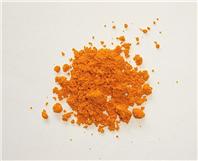Several posts recently have mentioned people having some difficulty in improving iron levels sufficiently even when taking Ferrous Sulphate or one of the other higher-dose iron supplements over a long time.
At the same time, some people have mentioned Floradix being helpful.
Well - it has been documented repeatedly that vitamin C can help with iron absorption. And Floradix contains that.
And the paper below clearly suggests that even slightly low riboflavin (vitamin B2) can also affect iron utilisation. Well, what do you know? Floradix has at least some riboflavin!
As this is NOT meant to be an advert for Floradix, I shall point out that vitamin C is readily available (and not particularly expensive). And riboflavin is also present in many foods. Marmite has 0.28 mg per four gram "serving"!
A bit more information about riboflavin:
en.wikipedia.org/wiki/Ribof...
Am J Clin Nutr. 2011 Jun;93(6):1274-84. doi: 10.3945/ajcn.110.008409. Epub 2011 Apr 27.
Correcting a marginal riboflavin deficiency improves hematologic status in young women in the United Kingdom (RIBOFEM).
Powers HJ, Hill MH, Mushtaq S, Dainty JR, Majsak-Newman G, Williams EA.
Source
Human Nutrition Unit, University of Sheffield, Sheffield, United Kingdom, and The Institute of Food Research, Norwich, United Kingdom. h.j.powers@sheffield.ac.uk
Abstract
BACKGROUND:
Moderate riboflavin deficiency is prevalent in certain population groups in affluent countries, but the functional significance of this deficiency is not clear. Studies have indicated a role for riboflavin in the absorption and use of iron.
OBJECTIVE:
We investigated the effect of riboflavin supplementation on hematologic status in a group of moderately riboflavin-deficient women aged 19-25 y in the United Kingdom.
DESIGN:
One hundred twenty-three women with biochemical evidence of riboflavin deficiency [erythrocyte glutathione reductase activation coefficient (EGRAC) >1.40] were randomly assigned to receive 2 or 4 mg riboflavin or a placebo for 8 wk. Measurements of hematologic status were made pre- and postsupplementation, and dietary intakes were also assessed; iron absorption was measured in a subgroup of women.
RESULTS:
One hundred nineteen women completed the intervention. The use of a riboflavin supplement for 8 wk elicited a significant improvement in riboflavin status with a dose response (P < 0.0001). For women who received supplemental riboflavin, an increase in hemoglobin status correlated with improved riboflavin status (P < 0.02). Women in the lowest tertile of riboflavin status at baseline (EGRAC >1.65) showed a significantly greater increase in hemoglobin status in response to the supplement than did women in the first and second tertiles (P < 0.01). Dietary iron intake and iron absorption did not change during the study.
CONCLUSIONS:
Moderately poor riboflavin status can affect iron status: the lower the riboflavin status, the greater the hematologic benefits of improving status. The results also suggest that consideration should be given to raising the currently accepted EGRAC threshold for deficiency. This trial was registered at controlled-trials.com as ISRCTN35811298.
PMID:
21525198
ncbi.nlm.nih.gov/pubmed/215...
Full paper:
ajcn.nutrition.org/content/...
Rod
Picture is some pure riboflavin powder.


